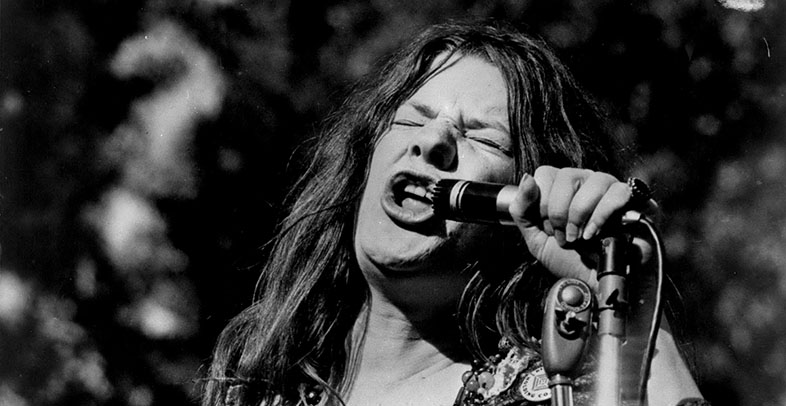2.1 Gendered music roles
Gender has had a strong influence on the roles which women have been assigned within popular music.
Activity 1
Read the following two excerpts from Mavis Bayton’s book Frock Rock: Women Performing Popular Music (1998). Which popular music role has been most commonly assigned to women?
The world of popular music is highly structured in terms of gender. Traditionally, women have been positioned as consumers and fans, and in supportive roles (wife, mother, girlfriend) rather than as active producers of music: musicians. When they have been on stage, on TV, on record, it has nearly always been as singers. They have sometimes written their own lyrics, rarely their own music, and there are very few women playing instruments. Currently, women’s lives are accompanied by a male soundtrack. This has important implications, for popular music permeates modern life and helps to make us the people we are, both reflecting gender differences and also actively helping to construct them.
The role of singer in popular music-making has been the obvious one for women who have, indeed, a special (rare) space in the professional world […] Nevertheless, this only serves to underline their structural exclusion as instrumentalists. Moreover, with female singers, traditionally, there has been an emphasis on appearance, image, and visual performance and a relative absence of analysis and discussion of vocal techniques and the voice-as-instrument.
Within popular music […] singing is seen as ‘natural’ or innate and women are believed to be naturally better singers. Women’s singing is seen in contrast with the learnt skills of playing an instrument, a kind of direct female emotional expression, rather than as a set of refined techniques […] an assumption which reinforces essentialist notions of biological different between men and women. Thus it is that the girl vocal group tradition, from the Shirelles in the 1950s to Eternal, Shampoo, and the Spice Girls of the 1990s, has been undervalued.
Discussion
The persistent cultural assumption that singing is a natural musical ability for women, which has led to the rare privileged position which female singers have been able to hold within popular music is illustrated by Janis Joplin being a singer. The ‘emphasis on appearance, image, and visual performance’ which Bayton highlights in the case of women singers also affected each of them.
Even more commonly, women have been expected to take supportive roles, as the groupies, girlfriends or wives of male musicians. They have also been inspiration for popular songs.
Singing is the popular music role which has been most commonly assigned to women.
Read the lyrics for the Beach Boys’ ‘Don’t Worry Baby’ (1964), and then listen to the song at least twice (there's a YouTube link below the lyrics). The Beach Boys were one of the most popular American male bands of the 1960s. What kind of role is being ascribed to the girl being addressed in the song? Is this a traditional role for girls and women?
The Beach Boys’ ‘Don’t Worry Baby’ (1964)
[Verse 1]
Well, it’s been building up inside of me for
Oh, I don't know how long
I don’t know why, but I keep thinking
Something's bound to go wrong
But she looks in my eyes
And makes me realize
[Chorus]
And she says (Don't worry baby)
“Don't worry baby
(Don't worry baby)
Everything will turn out alright”
(Don't worry baby)
Don’t worry baby
(Don't worry baby)
[Verse 2]
I guess I should’ve kept my mouth shut
When I started to brag about my car
But I can't back down now because
I pushed the other guys too far
She makes me come alive
And makes me wanna drive
[Chorus]
When she says (Don't worry baby)
“Don't worry baby
(Don't worry baby)
Everything will turn out alright”
(Don't worry baby)
Don't worry baby
(Don't worry baby)
[Verse 3]
She told me “Baby, when you race today
Just take along my love with you
And if you knew how much I loved you
Baby, nothing could go wrong with you”
Oh, what she does to me
When she makes love to me
[Chorus]
And she says (Don't worry baby)
“Don't worry baby
(Don't worry baby)
Everything will turn out alright"
(Don't worry baby)
Don't worry baby
(Don't worry baby)
“She makes me come alive
And makes me wanna drive
[Chorus]
When she says (Don't worry baby)
“Don't worry baby”
Now listen to the song on YouTube [Tip: hold Ctrl and click a link to open it in a new tab. (Hide tip)] .
Discussion
The girl being addressed in the song is placed in a supporting role. The lyrics suggest that her job is to assure the singer (presumably her boyfriend) ‘don’t worry baby’ and that ‘everything will turn out alright’. This type of nurturing (maternalistic) role is a traditional one for girls and women. For young girls listening to this song, it enforces the cultural message that their role is to stand by, support, nurture, and comfort their man. The lines ‘She makes me come alive, And makes me wanna drive’ suggest that the girl’s sexuality excites the singer and causes him to drive too fast, implying this has caused him impetuously to challenge the other boys to race, rather than this being something that he has done himself, of his own agency, to impress her. Popular songs often perpetuate the cultural myth that female sexuality is dangerous and drives men to do crazy things. Women and girls are often the sources of inspiration for popular songs.
